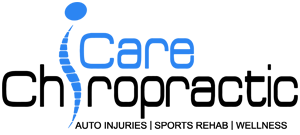Arthritis is defined as the breakdown of the cartilage around your joints. It can happen anywhere in your body, and common symptoms associated with arthritis include joint pain, stiffness, swelling, or restricted motion. While arthritis is a natural part of the aging process, the decisions you make each day dramatically affect whether it becomes a problem for you as you get older. The choices you make today play a powerful role in your future health.
Many people get diagnosed with arthritis and believe they are destined for a life of pain, but that isn’t true. Thinning discs and bone spurs happen as we age due to gravity, previous injuries, and other lifestyle factors. But you can manage and even mitigate many of the challenges of arthritis by making positive decisions for your spinal health each day. Here are three ways to stay proactive and reduce the effects of arthritis:
Each day, perform stretches and exercises that foster a balance of strength and flexibility
Use good ergonomics at your work desk by keeping your monitor at eye level
Follow a diet that limits inflammatory foods, which can contribute to pain and chronic inflammation
Next Steps:
A habit is defined as a routine that’s repeated without you even thinking about it. It’s estimated that most habits form after about 60 days. Can you follow the healthy habits above for the next 60 days? There isn’t just one thing you can do to prevent arthritis, but making small changes to your habits each day can help you minimize your risk of painful arthritis. If you are experiencing any of the symptoms associated with osteoarthritis, call iCare Chiropractic to schedule an appointment.
Science Sources
Do you have a stiff neck? Try these simple remedies. Cleveland Clinic. 2015
Intervertebral Kinematics of the Cervical Spine Before, During and After High Velocity Low Amplitude Manipulation.The Spine Journal. 2018
Chiropractic Care for Arthritis. Arthritis Foundation. 2020
Do you have a stiff neck? Try these simple remedies. Cleveland Clinic. 2015
Osteoarthritis. University of Maryland Medical Center. 2007
Outcomes from Magnetic Resonance Imaging-Confirmed Symptomatic Cervical Disk Herniation Patients Treated with High-Velocity, Low-Amplitude Spinal Manipulative Therapy. Journal of Manipulative and Physiological Therapeutics. October 2013





